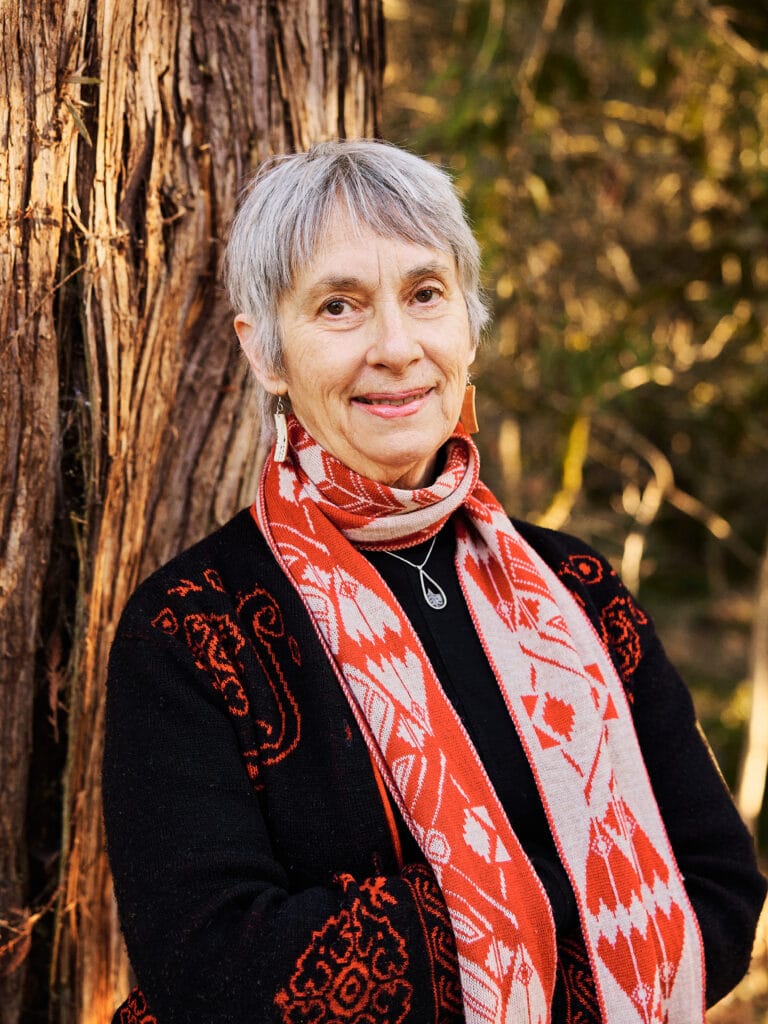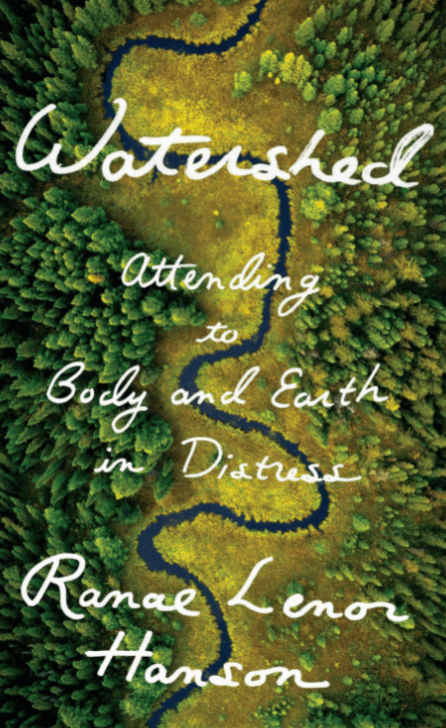Ranae Lenor Hanson, author of Watershed: Attending to Body and Earth in Distress
Memoir & Creative Nonfiction Category, sponsored by Bradshaw Celebration of Life Centers
Each week leading up to the 34th annual Minnesota Book Awards Ceremony, we are featuring exclusive interviews with our 36 finalists. You can also watch the authors in conversation with their fellow category finalists here.

Would you tell us one or two things about your finalist book that you are particularly proud of, and why?
I’m proud that the book weaves multiple paths through global distress (including climate disruption) and personal distress (like my diabetes) and that those paths emerge in another landscape filled, not with despair, but with nurture for ongoing life.
I’m proud that the book lets voices of many beings sing (especially those of my former students) because, if readers hear these voices, I trust they will feel the interconnectedness and worth of all.
What do you hope that your audience learns or takes away from your book?

I hope audience members deepen their commitment to communicating with all the diverse others who share their ecological and watershed communities, whether those others be stands of pine, rural evangelicals, Native leaders, urban racial-justice advocates, Somali newcomers, micro-organisms in the waters, or beings in faraway lands.
I hope the book will support readers as they turn toward actions that address whichever part of the justice or climate or water challenges they are personally called to.
What advice would you give to an aspiring writer with an interest in your category?
Listen to your body as well as to the trees and waters and beings around you; spend more time living in curious community with others (whether human or other-than-human) than you spend trying to be a writer. When you do write, speak from the wisdom of the community that you are and that you are part of.
Respond to the needs of the day – if the needs of the day are to care for children, do that. Trust that time for writing will come.
Tell us something about yourself that is not widely known.
Thirty-odd years ago I met with Carol Bly on her porch, hoping she would teach me how to be a writer. She read some things I had written and said, “When you have something to say, you’ll have no trouble writing it.” I was disappointed. I thought I had something to say already about why people should love the Northwoods. Yet, she was right. It took three decades of listening to others, it took the horror of climate disaster, and it took a diabetes diagnosis before I actually had something to say.
Minnesota enjoys a reputation as a place that values literature and reading. If this sentiment rings true for you, what about our home state makes it such a welcoming and conducive place for writers?
In Minnesota we have winter, the time for story-telling, for warming our feet, for long sleeps, for sharing soup with beloved others and with those we barely know. Winter lets us reflect on the ripe days of summer and on the events that have unfolded in and around us. Winter nights teach us to pull magic from dreams.
Minnesota houses overlapping communities:
- Four major watersheds that flow outward in three directions,
- Vibrant Anishinaabe and Dakota peoples who are themselves close and whose ancestors are accessible,
- Forest and grassland and lake and river communities that welcome humans who enter them humbly, and
- Layered communities of settler immigrants who bring gifts and traumas, which become compost for new growth.
Minnesota writers are jolted by ongoing evidence of fear, injustice, and abuse. That awareness forces us to reconsider the past, wake up to the present, and turn toward better for the future.
Since the onset of the pandemic in early 2020, virtually everything about our lives has changed in some way. Has COVID-19 (and its fallout) impacted your writing habits and preferences? Has the unique zeitgeist of the past two years influenced your writing output in any other ways that you can pinpoint?
I use the computer so much now for personal and professional communication that it’s harder to think of it as a space for writing. I have had to learn to make dedicated writing time with email and social media silenced.
Covid isolation has deepened my practice of the 15-minute discipline – short spans of time for movement, for writing, for housework, for communicating, for reading, for pausing, for going outside.
The pandemic has strengthened my virtual writing community. It has cut me off from some aspects of life that could have added divergent strands to my awareness, but it has also allowed existing and new communities to deepen.
Renae Lenor Hanson is a lifelong educator. She collaborates with Minnesota 350 and Transition US and other organizations to develop effective responses to the trauma of our changing climate.

